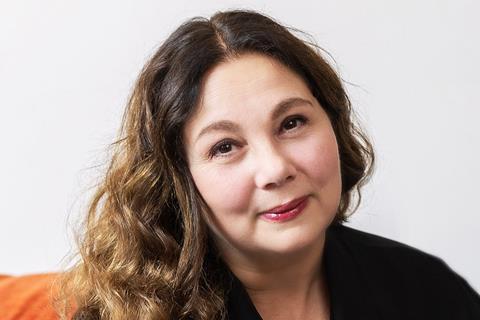
House Productions’ Tessa Ross voiced her support for calls from UK independent producers for the UK government to cashflow the Independent Film Tax Credit (IFTC) during a wide-ranging conversation at the BFI London Film Festival today (October 9).
Conclave producer Ross, who was taking part in an on-stage discussion with BFI CEO Ben Roberts, said of her wishlist of interventions to help UK independent producers: “I have a sort of dream, it’s a mad dream, but yes, I would love it if you would cashflow the tax credit. It would be amazing…that pressure is taken away.”
The subject was a hot topic at last week’s Screen Summit, with several UK producers highlighting the difficulty in sustaining a company due to high fees charged by private equity financiers, including banks.
Ross also spoke passionately about wanting a communal space with operational support to be established for independent producers, who often work alone from their kitchen tables.
“The being alone, having to go and hire a lawyer, a finance director, even for a short time, all of that support would be so valuable to producers wanting to make films, a space to talk together, a feeling that we aren’t all in competition with one another… I would love it if House was a bit of it.”
On the issue of producers having to defer fees to make production budgets work, Ross said: “We’re all deferring fees. There’s no getting away from that, and it is not right. Producers are deferring fees before anybody else, and we might have spent longer on the project than anybody else.”
Ross co-founded House in 2016 with Juliette Howell, the former head of Working Title TV. Their credits to date include Conclave, Bird, The Wonder, The Iron Claw and BBC series Sherwood.
Upcoming is Scrapper filmmaker Charlotte Regan’s first series Mint, also for the BBC, and Industry and Normal People screenwriter Alice Birch’s debut feature Sweetsick, which stars Cate Blanchett, and is now shooting with Film4 backing.
The BBC had a 25% stake in the company at launch, which was increased to full ownership in 2021. While a good chunk of House’s slate is BBC commissions, not everything ends up with the public service broadcaster – The Good Mothers was commissioned as a Disney+ series and Sebastian Lelio’s 2022 feature The Wonder was made for Netflix.
Danny Cohen-led Access Entertainment, a division of Len Blavatnik’s New York-headquartered investment company Access Industries, has a first-look option to finance development for House.
Career beginnings
Ross spoke about her early years in the industry, starting out as a literary agent with “really good taste, really bad with deals”.
She has gone on to hold posts at the BBC and British Screen, before heading to Channel 4 as head of drama in 2000 and then leading Film4 from 2002. She joined the public service broadcaster, which remains funded by commercial revenue, at a time of transition – in the early 2000s, the channel had ambition for Film4 to become a film studio, with a highly commercial focus, and a mission to make money and it was run as a separate limited company.
However, the disappointing box-office performance of films such as Danny DeVito’s Death To Smoochy in 2002 proved to be the nail in the coffin for this strategy, with Ross taking over as head of film that same year, charged with a budget of £10m a year to rebuild a scaled-back Film4 brand.
During her tenure, Film4 backed commercial and awards successes including Slumdog Millionaire, Four Lions, In Bruges, Under The Skin, Room, Frank, Carol, Ex Machina, Hunger, Shame and 12 Years A Slave.
“I was able to take it back to its real roots, which is easy to do when no one is looking,” she said, recalling the lack of expectation that was then put on film at the broadcaster after the failure of the film studio strategy.
“There were some years where I was doing £100m worth of films,” she recalls. It was under Ross that film was inscribed into Channel 4’s charter and given protected status.
Backing The Last King Of Scotland with Fox Searchlight (as it was then known) was the biggest swing she says she took at Film4.
“Knowing I never wanted to work in America or for a big studio” helped her to stand Film4’s ground when working with US studios.
Ross also remembers the challenge of working during the era in which Harvey Weinstein was a big player. “We sold two films – Carol and The Iron Lady – to Harvey. I remember thinking, How do we protect the filmmakers or the films from how he works?”
She took up the post of chief executive at London’s National Theatre in 2014, but was gone by 2015. “Lack of ability to make it work at the National Theatre – I could not find the right structure,” is what propelled Ross to finally set up her own production venture. “I hadn’t planned it – I hadn’t spent two years building a slate.”
House gives “equal love” she says to film and TV on its slate but acknowledges TV is in a tough place right now. “Television is very hard at the moment. We’re finding that thing of commissioners being able to say yes slowly, but there’s a lack of slots, and when there is a slot, there’s a lack of money. That feeling is now that television is in the space independent film was in.”

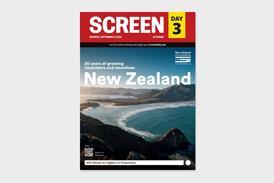

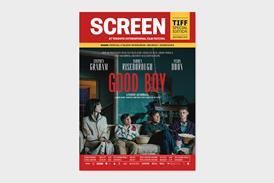



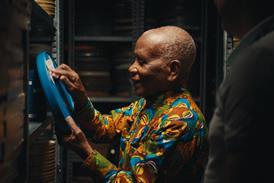

![[Clockwise from top left]: 'The Voice Of Hind Rajab', 'A House Of Dynamite', 'Jay Kelly', 'After The Hunt', 'The Smashing Machine'](https://d1nslcd7m2225b.cloudfront.net/Pictures/274x183/1/7/0/1459170_veniceawards_837515.jpg)




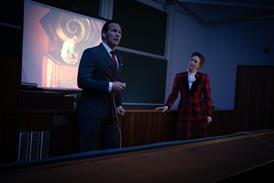
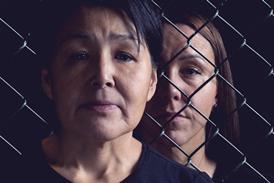

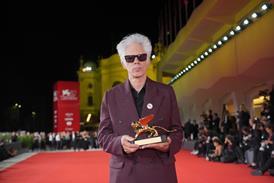







No comments yet